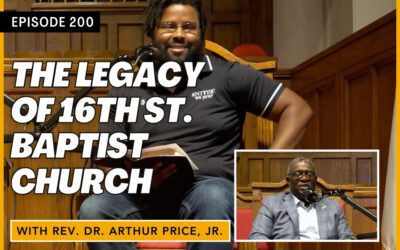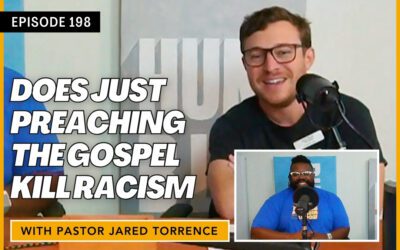In the introduction to this series, I argued that we often think of Critical Race Theory (CRT) in the wrong ways. We think of it as a unit to be taken up or discarded as a whole. We view it monolithically rather than seeing it as a complex field of study occupied by social scientists and historians who make contradictory claims. Rather than talking about CRT as a unitary discipline, we will instead engage with and evaluate some claims by individual critical race theorists.
There are plenty of things to critique about critical race theorists’ claims, and we’ll get there. But first, let’s see how critical race theorists can help us be more faithful Christians by helping us understand our own national history.
For more about how Christians can learn from non-Christians, click here.
The Racial History of American Christianity
Christian theology is not meant to be practiced by hermits independent of any society and history. We need to understand our situation in order to faithfully apply Scripture to it. Just as missionaries labor to understand their specific contexts and pastors get to know their people, so we all must understand the world around us to make a compelling and faithful witness to Christ.
The problem is, when it comes to American history, white Bible-believing Christians have not done well on the issue of race. Actually, in looking at the history of racism in America, we have done terribly. Christians have too often been active participants in racism and have failed to fully reckon with the historical failings of predecessors we otherwise claim and cherish.
Dr. King wrote to white clergy from Birmingham jail that the biggest stumbling block to justice wasn’t flagrant racists, but white Christians who didn’t care enough to step up and help. In essence, Christians have been accused of complicity in an unjust system. While that may be true in some cases, I think reality is far worse. Christians were not just silent in the face of injustice. Much of the racial injustice of American history was carried out by people who called themselves Christians. Worse than that, by people who claimed to make much of truth and care a lot about theology and fidelity to the Scriptures. What do we do with that?
Our National Narrative
We can call it something like a troubling inconsistency. Or an unfortunate misstep. Or we could brush it aside and not talk about it. Downplaying is its own form of lying (1). But some lie even more boldly and buy into the lost cause narrative. In surveying historiography on race by people who call themselves Christians, these are the approaches you are likely to find. Racism and all its heinous children—slavery, reconstruction, Jim Crow, redlining—are thought of as unpleasant footnotes on an otherwise idyllic society and heritage. We lionize our heroes and minimize their sins.
Here is where critical race theorists can help us, if we’ll let them. They have no heroes whose reputations they feel compelled to protect. Many of them have taken stock of the racial sins of American Christians and paint a condemning picture. While that might make us feel badly, is it true? Did early Christian settlers practice and spread chattel slavery, or didn’t they? Did pastors and theologians from Whitefield to Dabney come up with reasons to defend the institution of American slavery, or didn’t they? When political pressure mounted against slavery, did brand new, Bible-proclaiming Presbyterian and Baptist denominations form to protect the practice, or didn’t they? Even a century later, during the civil rights movement, did the political muscle of conservative Christianity get behind it, or did Southern Baptists such as Strom Thurmond and Jesse Helms politically oppose it?
Perhaps the worst sin of white Christians was not complacency. It wasn’t just that Dr. King did not have allies in the pews of white moderate churches, as he called them. He had all-out enemies, like Thurmond and Helms.
Critical race theorists have done good historical work in outlining the complacency, sins of omission, and outright racism of American Christians through the centuries (2). We ought to let them do it. It will help us understand the heritage of racial tension and ignorance we inherit. It will help us understand how we are perceived by the world. And it will help us decide what corrective actions need to be taken.
You have probably heard an argument that goes like this: America needs to return to the values and practices of yesteryear in order to achieve our desired moral or political outcome. But getting this pill down requires us to ignore a number of incontrovertible facts. Was America morally better in previous centuries? If so, who benefited? This is where Christian historians and critical race theorists suffer from opposite problems. Many Christian historians ignore facts in order to bolster our preferred narrative about the past. Critical race theorists thoroughly collect facts, but then run them through ideological prisms to project a vision of the future that we must not support. We must not buy into solutions which run counter to the Word of God. But it would be irresponsible to ignore facts that do not fit our preconceived notions of our history. We should learn from critical race theorists who shed light on historical blindspots we have.
Many pieces on CRT by self-identified Evangelicals or Reformed Christians will admit that Christians can benefit from CRT insights (3). But the conclusion of many such pieces is that CRT has foundational incompatibilities with Christianity and as such is too dangerous to read and study. If that’s the conclusion, admissions of helpfulness amount to mere lip service. What one hand gives, the other takes away. Our own historiography on issues of race is woefully lacking. Let’s not turn away common-grace insights. The right way to evaluate a truth-claim is not by asking whether the individual who makes it has been infected by CRT. Once we establish the truth of historical claims, we come to an important question, “what do we do about it?” We will address this question in the third installment of this series.
Click for part one, part three, or part four of the series.
- (1) The Westminster Larger Catechism Question and Answer 145 defines lying, in part, as, “undue silence in a just cause, and holding our peace when iniquity calleth for either a reproof from ourselves, or complaint to others.”
- (2) See “English Christians among the Blackest Nations” in Rebecca Anne Goetz, The Baptism of Early Virginia. (Baltimore: Johns Hopkins University Press, 2012), 13-34. Her historical examination of European Christians is thorough and sobering, though her theological analysis is lacking at times.
- (3) We affirm that Scripture contains everything we need for life and godliness. God’s Word also gives plenty of examples of how Christians can learn from non-Christians or outside sources. Sola Scriptura should not give way to nuda Scriptura.
Prayer Requests:
- Pray that God makes us receptive of truth, regardless of who is telling it.
- Pray that God makes us humble enough to recognize facts we do not like.
- Pray that God’s people would care more about eradicating racism than defending ourselves from accusations of racism.












